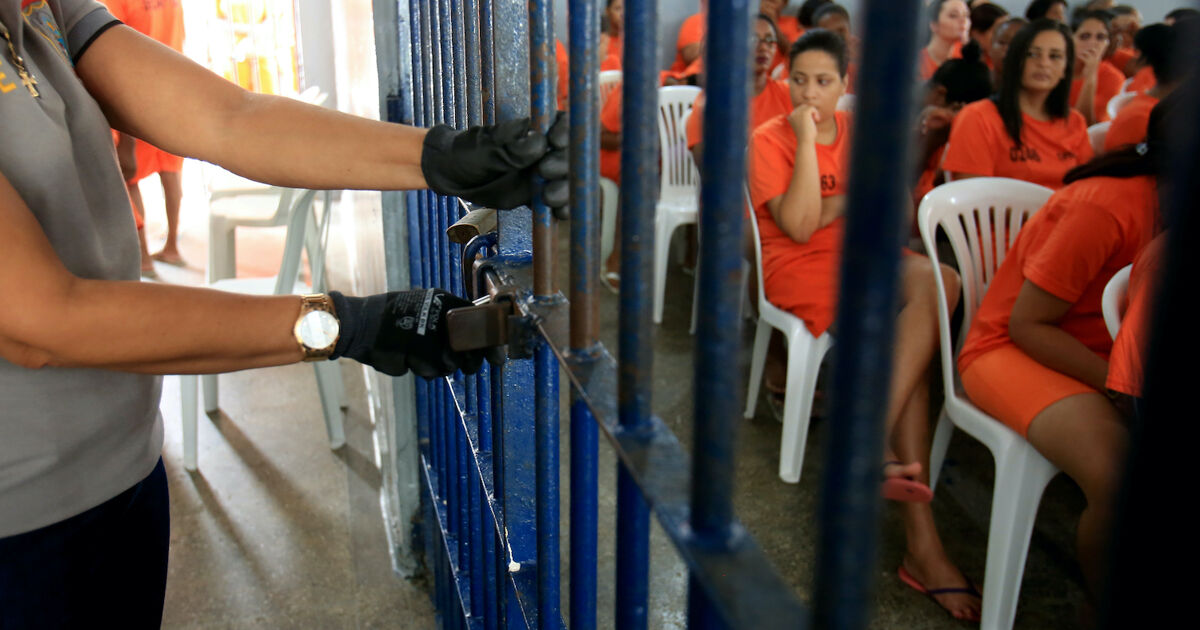
Despite multiple court rulings barring the transfer of trans female inmates in federal prisons to men’s facilities, trans prisoners are still being forcibly removed and denied gender healthcare as the administration of President Donald Trump continues its crackdown on trans people.
Trump’s Day One “gender ideology” executive order directed the Justice Department to purge women’s prisons of trans female inmates and end their gender healthcare. The diktat was immediately challenged in three lawsuits.
Related
Women win court ruling blocking Trump’s order to house trans women in men’s prisons
Trump’s transphobic order is now blocked nationwide, thanks to three trans inmates and an LGBTQ+ advocacy org.
Judges ruled that the U.S. Bureau of Prisons (BOP) can’t withhold the inmates’ medical treatment and barred their transfer. Plaintiffs had “straightforwardly demonstrated that irreparable harm will follow,” one judge wrote of Trump’s order.
Insights for the LGBTQ+ community
Subscribe to our briefing for insights into how politics impacts the LGBTQ+ community and more.
Subscribe to our Newsletter today
The 17 plaintiffs represented in those cases won a reprieve, but the rest of the federal trans inmate population continues to suffer under the Trump administration’s denial of transgender reality.
“I’m just continuing to be punished for existing,” said Whitney, a 31-year-old trans woman who was transferred from a women’s facility to a men’s prison this week. In messages before her transfer, she told the Guardian she felt like a “pawn in others’ political games.”
The BOP changed her records from “female” to “male”, records show.
Kara Janssen, one of the attorneys representing trans women in litigation, said she’s learned of at least two other trans women recently transferred to men’s facilities and reclassified as men.
“This is incredibly unnecessary and cruel,” she said. “Our clients are desperate and scared.”
Under the Prison Rape Elimination Act (PREA), adopted in 2003, the BOP is required to screen incarcerated people for sexual assault risk and consider their LGBTQ+ identity when making housing decisions. Experts and attorneys for the women say Trump’s policy is a clear violation of the longstanding policy.
Internal BOP memos shared with The Guardian show officials now require staff to refer to trans inmates by their legal names and incorrect pronouns and deny requests for clothing that aligns with their identity. The BOP has also rescinded a policy allowing trans women to request pat-down searches conducted by female guards.
Clothing that does not align with inmates’ documented sex is now being treated as “contraband”, with inmates forced to hand over bras and panties under threat of discipline, said Susan Beaty, a senior attorney for the California Collaborative for Immigrant Justice, who represents about 20 trans people in federal prisons.
Groping has increasingly been reported by trans women inmates as well.
“It is already so difficult to be a trans person in prison in this country, and now this administration’s measures are intentionally terrorizing and traumatizing incarcerated trans people even further,” Beaty said.
One judge among the three cases being litigated agreed, criticizing the federal government for failing to address plaintiffs’ concerns that their gender dysphoria would be exacerbated in men’s facilities “whether because they will be subject to searches by male correctional officers, made to shower in the company of men, referred to as men, forced to dress as men, or simply because the mere homogenous presence of men will cause uncomfortable dissonance”.
“This is fake – this whole executive order is false on its face,” said Alix McLearen, who was acting director of the National Institute of Corrections (NIC) in 2022 and drafted a “transgender offender manual” when she oversaw women and special populations at BOP. Those guidelines have now been rescinded.
“It’s scapegoating,” she said. “Trans people are easy to scapegoat.”
Subscribe to the LGBTQ Nation newsletter and be the first to know about the latest headlines shaping LGBTQ+ communities worldwide.